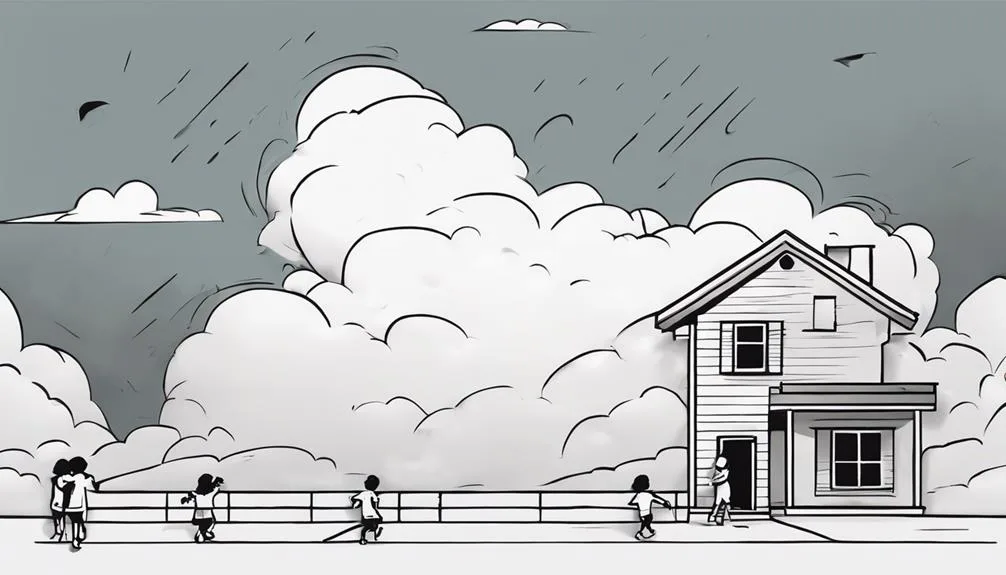Staying in a toxic relationship for the kids is like trying to shield them from harm, but it might not always be the best choice.
There are several key factors to consider, from how it affects your children's mental health to managing parenting together.
This article will look at these important aspects, helping you understand the potential impacts and guiding you through thinking about what's truly best for your family in such situations.
Key Takeaways
- Witnessing parental conflict harms children's emotional health and future relationship understanding.
- Staying in a toxic relationship can erode self-esteem, affecting both personal and professional growth.
- Toxic dynamics impede financial stability and autonomy, limiting opportunities for independence.
- Coparenting in a toxic environment challenges children's security and emotional well-being.
Impact on Children's Well-being
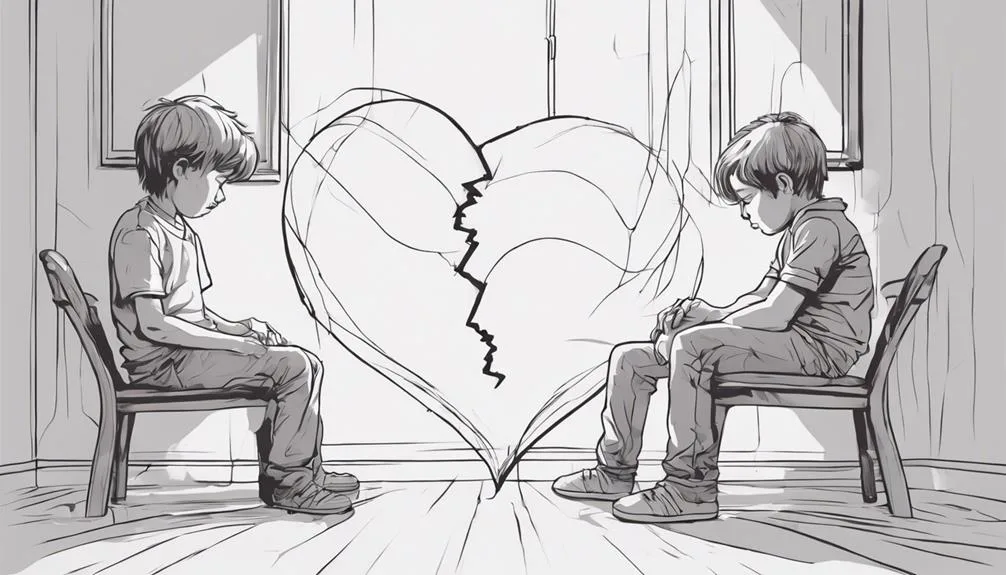
Witnessing a toxic relationship can greatly harm children's emotional and mental health. When you're entangled in constant parental conflict, it's not just you who's hurting. Your kids are absorbing every argument, every cold silence. This exposure doesn't just vanish; it embeds itself into their psyche. They learn from what they see, and unfortunately, they're learning about relationships from your battles.
Beyond the emotional turmoil, there's the risk of social isolation. Children from homes marked by strife often pull back from friends and activities, feeling embarrassed or unsure how to relate to others. They're carrying a weight that shouldn't be theirs, isolated by circumstances they can't control.
It's essential to understand the profound impact your toxic relationship can have on their developing sense of self and connection to the world around them.
Emotional Health Consequences
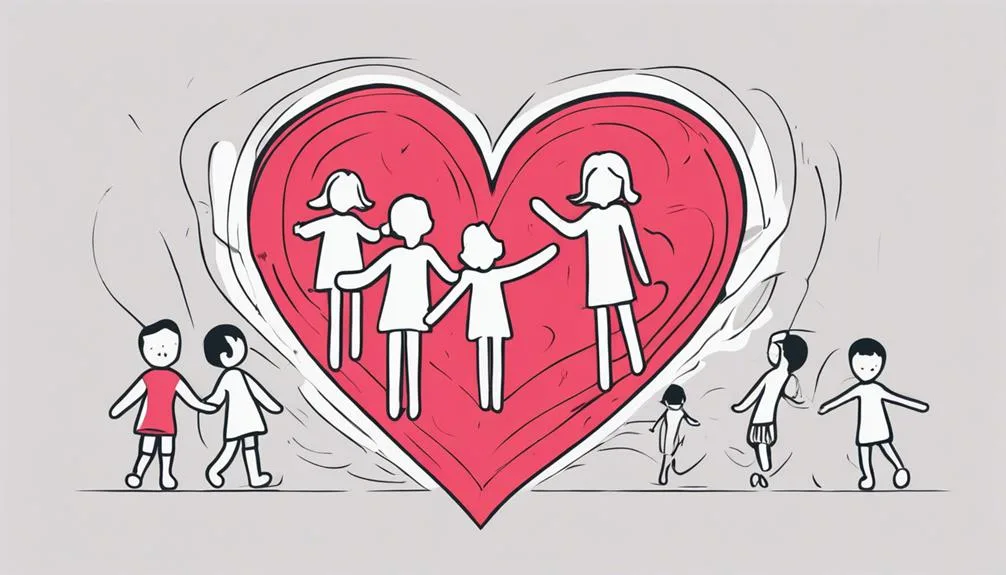
Beyond the visible scars, staying in a toxic relationship can deeply affect your emotional health, leading to lasting consequences. You may find yourself grappling with self-esteem issues, constantly questioning your worth and abilities. This erosion of self-confidence doesn't just stay within the confines of the toxic relationship; it seeps into your interactions with others, affecting friendships, family bonds, and even your professional life.
Additionally, enduring a toxic relationship sets a precedent for future relationship patterns. You might unknowingly gravitate towards similar dynamics, thinking they're normal or what you deserve. It's essential to recognize the toll such an environment takes on your emotional well-being, nudging you towards a cycle that's hard to break. Prioritizing your emotional health is essential, not just for you, but for those around you who are affected by these patterns.
Financial Stability Considerations
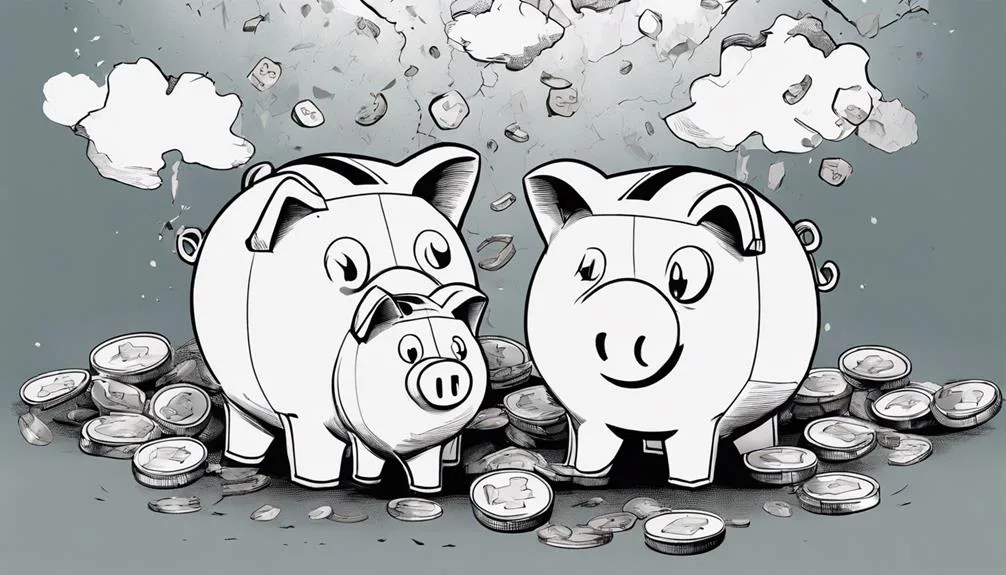
Staying in a toxic relationship can also severely impact your financial stability, potentially hindering your ability to maintain autonomy and make independent choices. The constant stress and negativity might drain your focus and energy, slowing down your career progression.
You're likely investing time in managing the relationship's dynamics rather than pursuing opportunities for professional growth or additional income. Additionally, toxic relationships often lead to social isolation, cutting you off from networks that could offer support, advice, or job leads.
This isolation not only affects your emotional well-being but also restricts your financial opportunities. By remaining in such an environment, you're inadvertently putting barriers on your financial independence and limiting your ability to provide a secure future for yourself and your kids.
Coparenting Dynamics
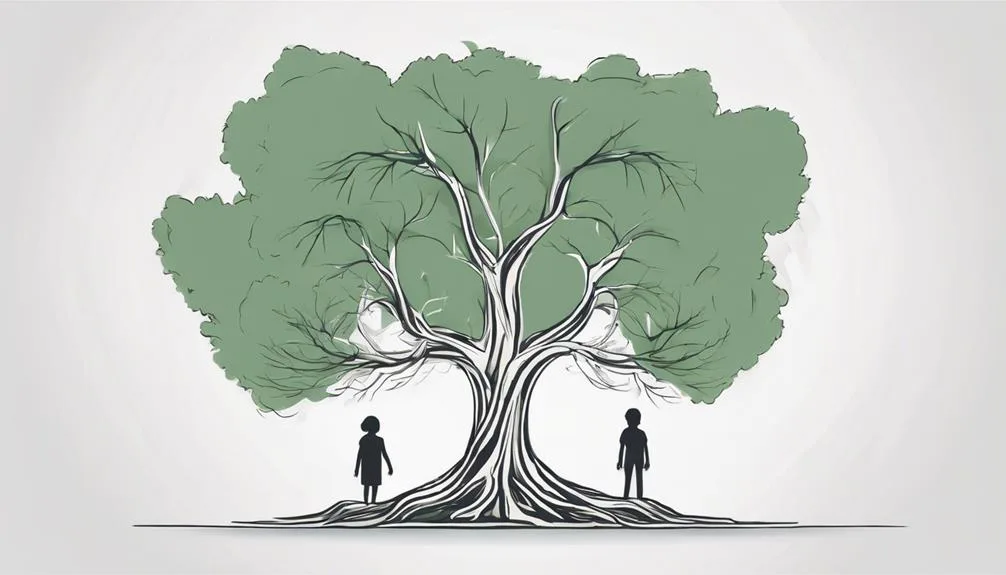
While financial stability is a significant concern, maneuvering coparenting dynamics within a toxic relationship presents its own set of challenges. Coordinating shared custody arrangements requires a level of cooperation that may be hard to find. You'll need to navigate through differing parenting styles, which can create confusion and inconsistency for your children.
| Factor | Impact on Children |
|---|---|
| Inconsistent Rules | May lead to confusion and insecurity. |
| Lack of Communication | Can cause feelings of alienation. |
| Parental Conflict | Might result in emotional distress. |
Understanding and addressing these dynamics is crucial. Despite the difficulties, finding a way to co-parent effectively is essential for your children's well-being and development. Remember, it's about making the best out of a challenging situation for their sake.
Legal Implications
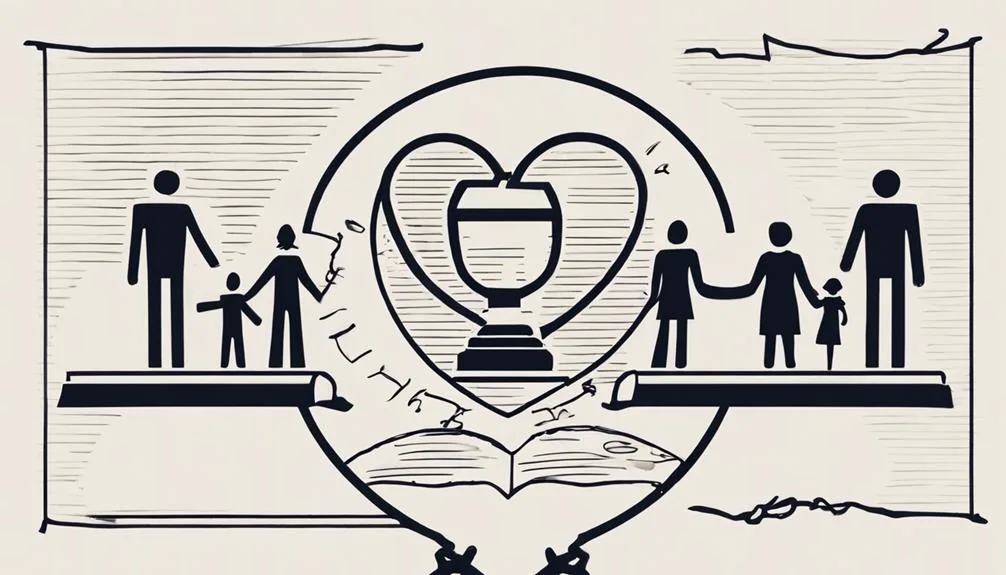
Handling a toxic relationship's legal landscape requires understanding the potential legal implications that might affect you and your children. Moving through this terrain, you'll come across several critical factors:
- Custody Battles: The fight for custody can be lengthy and emotionally draining. It's important to ponder how a toxic environment might influence the court's decision regarding your children's living arrangements.
- Divorce Proceedings: Initiating a divorce involves numerous legal steps. You'll need to be prepared for the complexity of dividing assets, determining alimony, and other financial considerations.
- Protective Orders: In cases involving abuse, obtaining a protective order might be necessary to guarantee your and your children's safety. This legal document can restrict the abusive partner's actions towards you and the kids.
Support System Availability

After exploring the legal ramifications, it's equally important to look at the support systems you have access to when maneuvering a toxic relationship. Your support system can greatly impact your journey, helping you maintain your personal identity amidst social stigma.
| Support Type | Benefits | Challenges |
|---|---|---|
| Family | Emotional anchor | Potential bias |
| Friends | Objective insights | Limited understanding |
| Professionals | Expert guidance | Accessibility issues |
Leaning on a diverse support system not only aids in dealing with the complexities of a toxic relationship but also in preserving your personal identity against the backdrop of social stigma. It's vital to evaluate who's available to support you, understanding that each source offers unique advantages and faces distinct challenges in assisting you through this challenging time.
Conclusion
Deciding to remain in a toxic relationship for the sake of the children requires careful consideration of several crucial aspects. This choice demands a deep understanding of its impact on your children's mental and emotional health, your own well-being, financial security, the dynamics of coparenting, potential legal concerns, and the network of support available to you.
The decision you make not only charts the course of your own future but also significantly shapes your children's developmental journey. It's about striking a balance that ensures safety, happiness, and growth for all involved.
As you ponder your next steps, consider what legacy you wish to leave for your children and how your choices today will influence their tomorrow.

